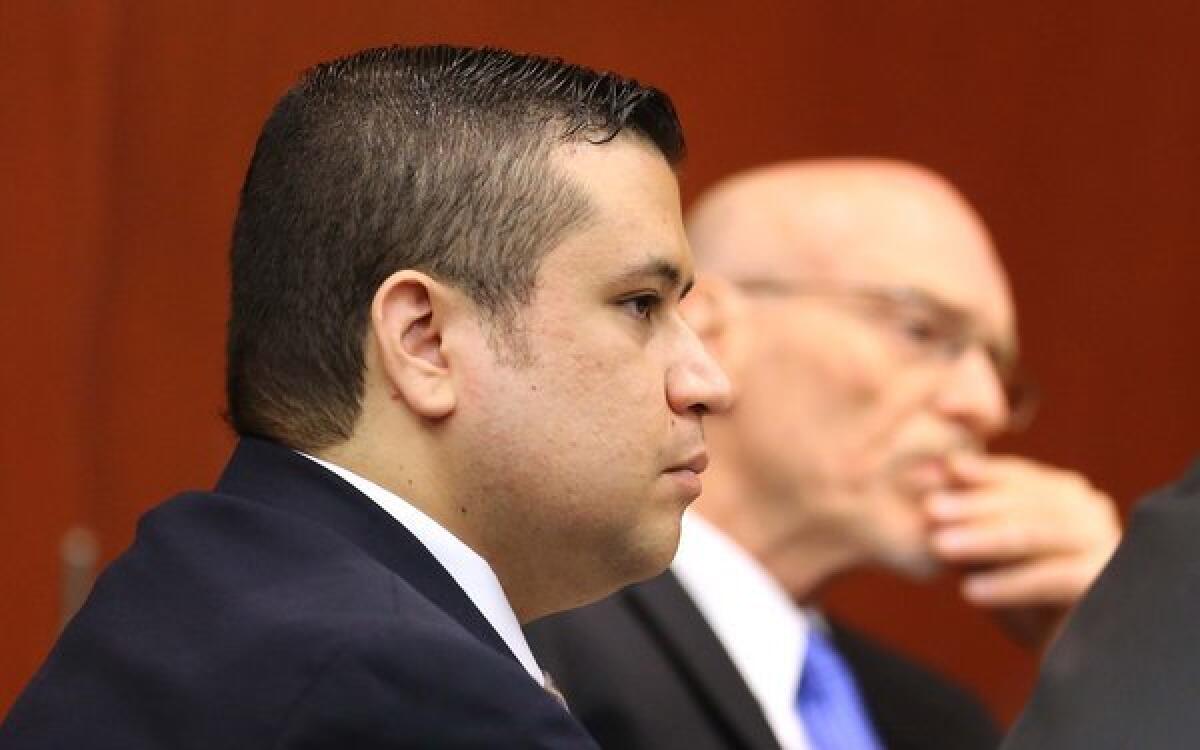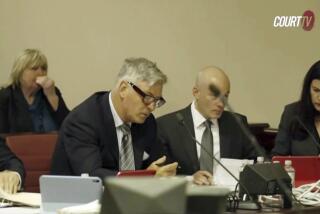George Zimmerman trial: 11 more prospective jurors are interviewed

The second day of jury selection in the George Zimmerman trial in Sanford, Fla., picked up steam on Tuesday as lawyers continued to explore the attitudes and politics of those who may decide the fate of the former neighborhood watch volunteer charged with second-degree murder in the shooting death of an unarmed black teenager, Trayvon Martin.
In another day of questioning, lawyers interviewed 11 more people from the latest crop of potential jurors who filled out questionnaires that the lawyers are using to frame their inquiries. In two days, 15 have made it to the courtroom to answer questions from attorneys on both sides, though one of Tuesday’s 11 only spoke privately.
After the questioning was done, the lawyers approached Seminole County Circuit Judge Debra S. Nelson and privately discussed which of the possible jurors would be excused.
The lawyers are trying to form a pool of 21 possible jurors who will go through more questioning to determine their views in depth. It was unclear how many of the 15 prospective jurors questioned so far will make it to the panel of 21.
Eventually, six jurors will decide Zimmerman’s fate. Four alternate jurors also will be selected and all of the names will be kept from the public to protect the jurors’ privacy.
The process is going slowly but Tuesday was slightly more rapid than Monday, when just four prospective jurors were brought into the courtroom. According to court officials, 41 potential jurors, just one of whom made to the questioning phase, were dismissed on the first day.
Zimmerman, 29, has apologized for shooting Martin, 17, in a confrontation on Feb. 26, 2012, in Sanford, but insists he acted in self-defense. The case sparked local and national demonstrations accusing Zimmerman, a former neighborhood watch volunteer, of having profiled Martin because the teenager was black.
Though the initial round of juror questioning has mainly dealt with the effect of pre-trial publicity, it has inevitably revealed some of the thinking of the jurors on broader issues such as race, the role of self defense and the way the media reports this type of case.
For example, juror B35, a middle-aged black man who said he owns vending machines, described last year’s protests over the shooting as saber rattling and wondered why there hadn’t been demonstrations when other black men had been fatally shot.
“I think they politicized it and made it a racial issue, and I didn’t like that,” the possible juror said. “I wasn’t agreeing with the racial connotation.”
The other thread in the trial is self-defense. Florida has a “stand your ground” law, which allows the legal use of force in more circumstances than in many other states. Zimmerman has waived his right to a special hearing under the law, but the self-defense claim is the heart of the defense, though it is unclear exactly how the law might be used.
One possible juror, B7, a middle-aged white man, said he didn’t think Florida’s “stand your ground” law was necessary, given other self-defense laws that were in place. The juror also questioned the extensive media coverage of the case.
“I didn’t like the way the news covered it.... It felt very speculative,” he said, adding he thought a lot of people “have taken sides on it.... I find that inappropriate.”
In the afternoon session, one possible juror, B55, insisted she didn’t read newspapers or watch television, relying on social media, including Facebook, for the majority of her news. She described herself as a college student who just completed finals.
At the other end of the scale, juror B65 said she had no cable television or Internet. The woman, who is black, said she heard about the case at church -- a potential problem since many in the church community have supported charging Zimmerman. The potential juror said she was aware of demonstrations in support of the Martin family but insisted she could be impartial.
ALSO:
Princeton University evacuated after bomb threat
New Mexico has highest rates of childhood hunger, study says
Appeals court hears arguments on New York City’s big-soda ban
Twitter: @tinasusman
More to Read
Sign up for Essential California
The most important California stories and recommendations in your inbox every morning.
You may occasionally receive promotional content from the Los Angeles Times.












